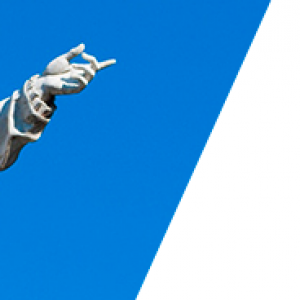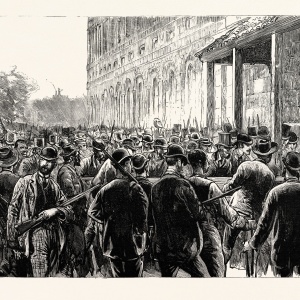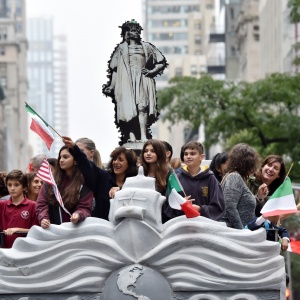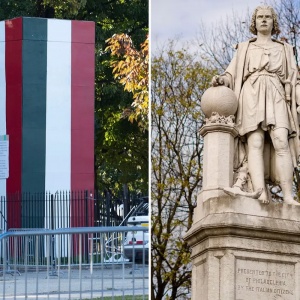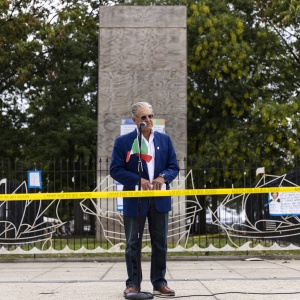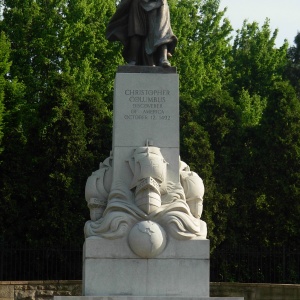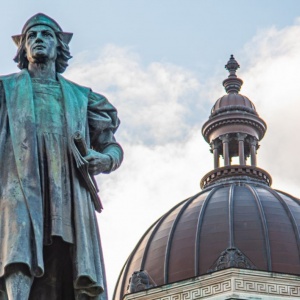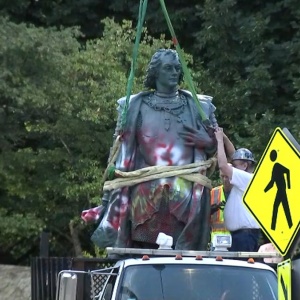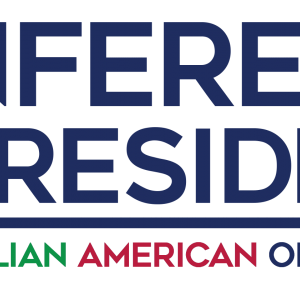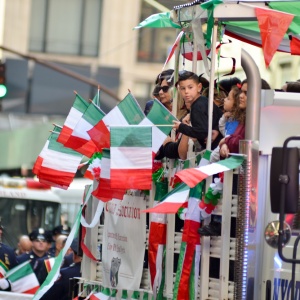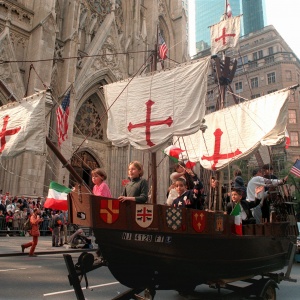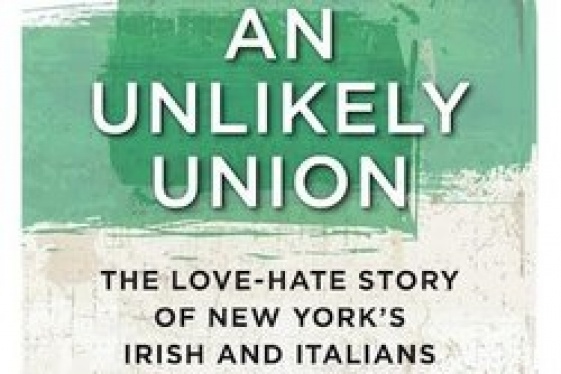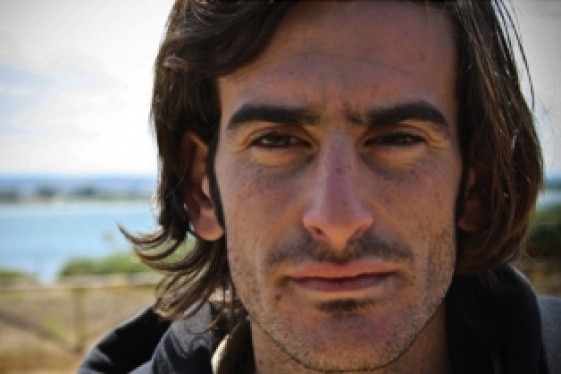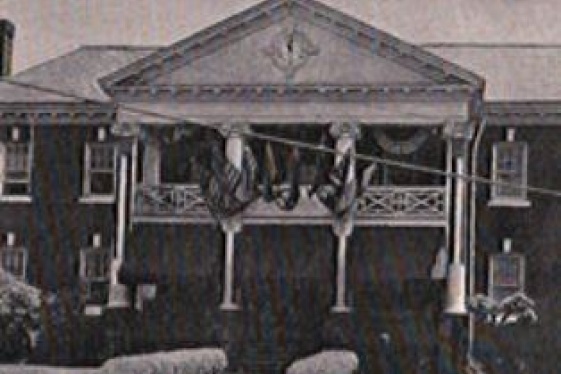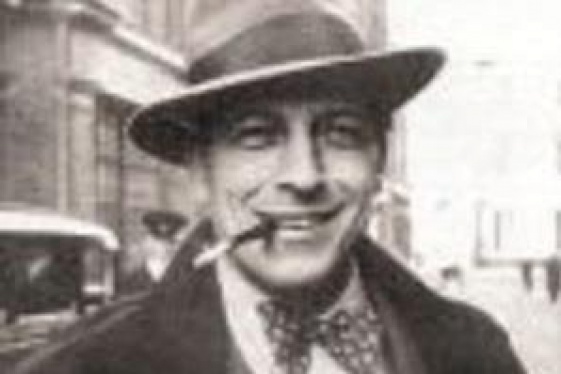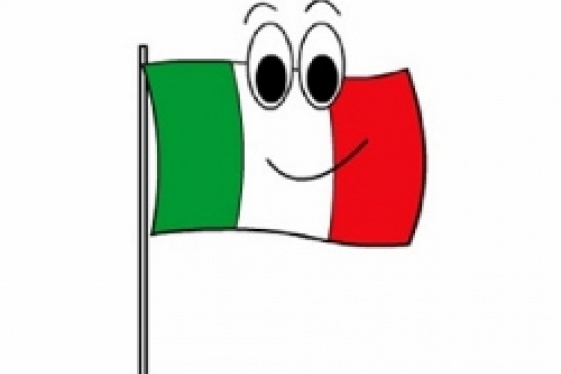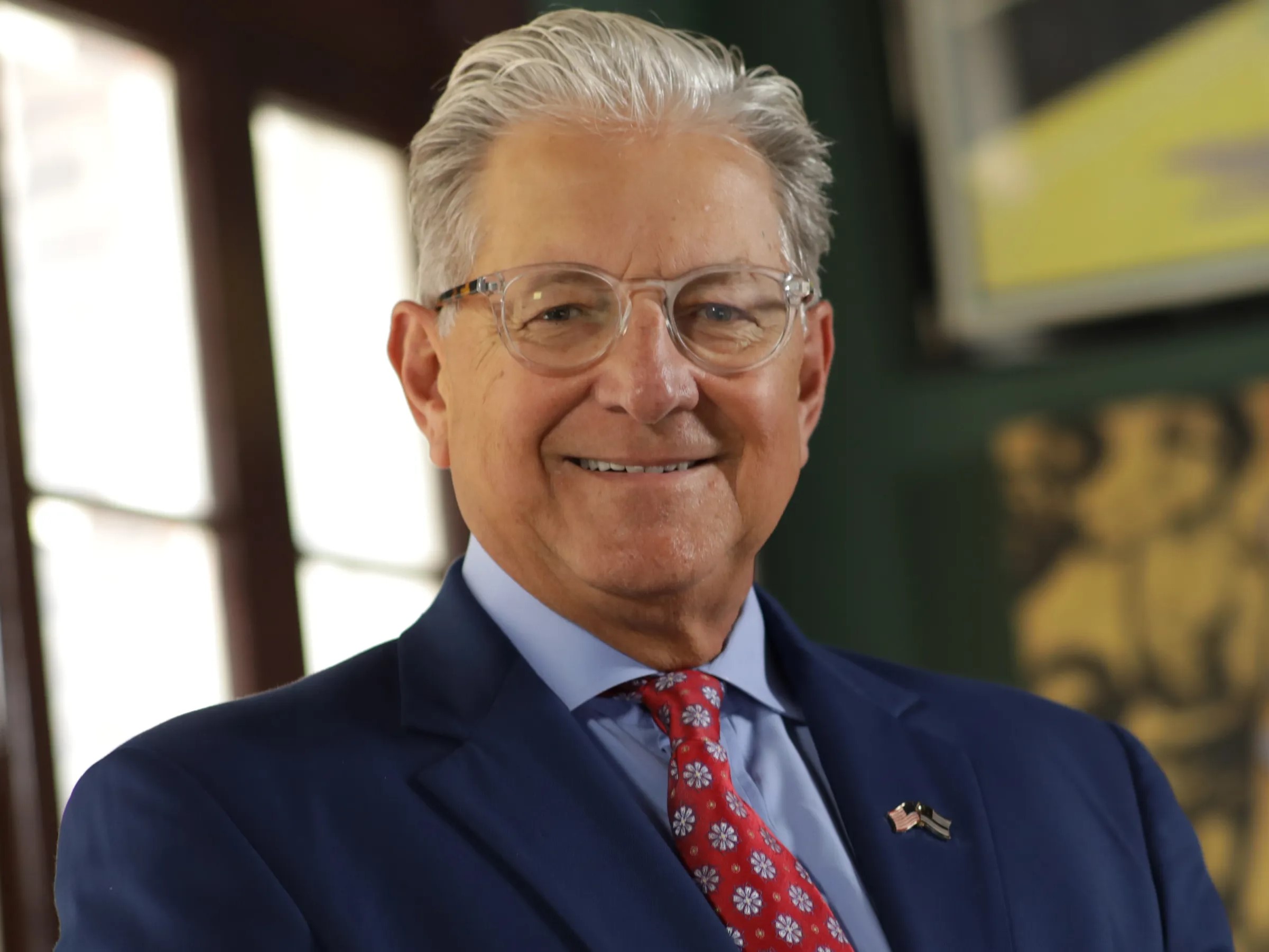
George Bochetto (Lawyer in defense of Christopher Columbus)
La difesa legale di Cristoforo Colombo nei tribunali americani: grazie a George Bochetto

Many times we have described the historical and cultural reasons why attacks on Columbus are based on falsehoods, unacceptable and wrong. The Italian American comity is defending itself and the symbol it has chosen, in different ways.
One of these ways is the legal way. Those who removed the Columbus statues and cancelled Columbus Day, not only obeyed false motives, and disrespected history and Italian Americans, but also committed serious procedural and judicial irregularities. A Philadelphia lawyer is fighting these decisions in court, and we thank him truly for what he is doing. Welcome to George Bochetto.
George, you are an Italian American very proud of your Italian ancestry. What part of Italy did your family come from?
Well, my family is from originally Postiglione, which is just above Battipaglia, in the Campania region, just south of Salerno.
And did they come to the United States before you were born?
No, it's a little bit of a long story, but I was conceived in Italy, but born in Brooklyn.
We the Italians has always been active in defending Christopher Columbus. But we are not experts in American law, nor are most of our readers. From a strictly legal standpoint, why is it right to defend Columbus' statues?
Well, let's review the history of Columbus Day and the location of many, many Columbus statues in America. In the 1891s, in Louisiana, thirteen Italian immigrants who were tried and found not guilty were hung in a mass hanging, which is the largest mass hanging ever to take place in the United States. It was such an affront to the Italian community and the Italian Americans that, years after that, Congress legislated that the first Monday in October should become Columbus Day.
There was a lot of efforts to locate and place statues all across America, particularly in those cities that had strong Italian immigrant communities. From a legal point of view, most of these statues were placed in various cities pursuant to either a donation agreement or a resolution of the city or the State to accept it and to place it in a public park and that type of thing.
When this cancel culture movement started in the United States to try to remove those statues, of course the mayors of these big cities did not bother to look at these donation agreements and statute ordinances and that type of thing. They just wanted to rip them out of the ground.
Well, I went about securing all of the actual donation agreements and ordinances and all the legal circumstances which allowed the statue to be placed there in the first place. And then in court, we showed how the mayors were breaching or disregarding their obligations under those agreements and those ordinances. We prevailed in many cases based on that.
For example, in Philadelphia we had a Columbus statue, which was donated originally, I think in the 1890s, around the time of that mass hanging, by the Italian government to Philadelphia: and there was a donation agreement. And there are also ordinances in Philadelphia that regulate who and how can remove or relocate any kind of historical statue. We had a statue in a park; there was also an obelisk on the river in Philadelphia, Delaware Avenue, and they were trying to remove both of those. I filed two separate lawsuits against the city and all the responsible parties, and we were able to stop that.
We were able to stop it also in Pittsburgh, PA. We were able to stop it in Syracuse, NY. There are now efforts in Chicago, IL, where the statues got removed. But there's now efforts to have them restored, again on the same basis that mayors typically do not have the authority to overrule either the legislature or some earlier governing body when they decided to place those statues there.
That is the essence of the legal case. It gets a lot more complicated, of course, than that. And there is also all kinds of procedural issues. There is a concept in American law known as standing. Who could bring a lawsuit? Who has standing to bring a lawsuit? Many of the municipalities and the mayors that have tried to get away with these types of things, really contest whether you have standing. That is a very important issue.
We had to choose the plaintiffs, the people that bring the lawsuit, very, very carefully because not everybody has standing. But we won those battles. You know, we have been battling it now for three and a half years in various cities and we won all those battles. And I have had some support from some of our Italian American organizations here in this country, like the Sons and Daughters of Italy and the Conference of Presidents of the Major Italian American Organizations and that type of thing. Although I have largely conducted this entire legal campaign at my own expense.
What are the differences between the lawsuits related to the statues and those related to the cancellation of Columbus Day?
Well, there is also efforts to change Columbus Day. It is a whole different situation and they're trying to convert it into what is known as Indigenous Peoples Day. And the position that we have taken here in this country, and which I had the full support of the Italian American community and even some of the tribal nations, is this: we are not opposed to there being an Indigenous Peoples Day, but name it some other day. Why do we need to cancel Columbus Day to have an Indigenous Peoples Day? Why can't we have both? Don't cancel ours.
And by the way, Columbus Day is a federally recognized national holiday by an act of Congress. So, these mayors in these towns and cities do not have the authority to overrule the Federal Government.
In our country we have three branches of government. The executive branch, which includes the President and the Mayors and the Governors. We have the legislative branch, which is the Congress and the State legislatures. We have the judicial branch, the courts. A mayor in the executive branch does not have the authority to overrule an act by the legislative branch of government.
So, we have those challenges still pending. I am waiting on rulings, again they have challenged standing. But I think we are going to prevail on the lawsuit, but we are still waging that war. There are however some jurisdictions in the United States, for example in Massachusetts, where the legislative branch is now considering repealing the statute, which in Massachusetts created Columbus Day. But even there, I think that that is dubious, since the Federal Government has already ruled that the first Monday in October is to be known as Columbus Day. There are a lot of legalities taking place.
I wish I could tell you that there is now a trend away from this cancel culture stuff, but we have a lot of terribly misinformed people in this country who have found their ways into powerful positions and they're acting on their misinformation. And part of what I am trying to do is get them thinking straight.
Please, help me even more clear on this, because I think it is very important. It seems to me that never in any lawsuit has the Italian American community ever denied the rights of the Native American community nor the brutalities to which they have been subjected, in which, however, Italian Americans are not at fault. Am I wrong?
That is absolutely correct. That is so true. And people just don't understand it because they failed to recognize that when the Italian immigration took place in the late 1800s, Italians themselves were discriminated against and mistreated terribly by those that were already here.
Italians did not enslave African Americans and did not brutalize the Native Americans here. That was done by other parts of society, primarily those from England. And, by the way, also a little understood fact is that some Native Americans were among those who enslaved other Native Americans. They were as brutal on their own kind as the white man was on them. So, there's a lot of misinformation and there has been an increasing amount of scholars in this country trying to bring this back to the public's attention. Unfortunately, there is some popular history books, so to speak, that have it completely wrong. It is really just a very biased, inaccurate presentation of what actually took place. And it's a shame.
Italian Americans in the last 175 years have been extremely successful in this country, very hardworking, very successful. We had many lawyers and doctors and governors and so on, and they're kind of lumped together with other ethnic groups who may themselves have been more brutal. But they forget that the Italians came here and lived in ghettos with inadequate housing, inadequate medical care. They were brutalized by the police. They were virtually enslaved as laborers in the fields and in the factories and in the coal mines and the steel mills. There's an increasing awareness now by Italian American leaders to really try to defend our heritage and our accomplishments.
Isn't it important that Columbus was chosen as a symbol by Italian Americans?
You are right, he was the symbol of Italian American culture and achievements and heritage and ethnic pride. All ethnic groups have their heroes. Sitting Bull is a hero to the indigenous people. Jim Thorpe was another one: he participated in the Olympics and won the gold medal in decathlon. African Americans had their heroes too, like Martin Luther King. The Jewish ethnicity have their heroes. All ethnic groups have their heroes. And there's nothing wrong with that. They should be allowed to celebrate and take pride in their culture and their accomplishments and their hard work. What's wrong with that?
But to single out Italians now and say “we are going to cancel Columbus Day and to rip down his statues” is just wrong. We are just not going to put up with it.
What are the arguments of the parties opposing yours in these cases? Is it possible to find a compromise?
There should be compromises and there should be negotiations. But unfortunately, the ultra-left wing in this country, they don't negotiate, they don't want to cooperate. They want it all their way. So, you have to fight them tooth and nail. And their argument is that Columbus was a genocidal murderer and slayer of indigenous people, and we should not be celebrating such a horrific person. Well, it is just absolutely false. And there are many scholarly works now coming out that demonstrate and prove just how untrue those things are.
For example, they are meticulously going through Columbus's diaries. Back in his day everybody kept a diary, and there has been a determined effort to review all those diaries and make sense of them. These efforts are demonstrating that the idea that Columbus came over here and just started mass killing people and enslaving Native Americans, is just not true. It is not what happened nor was it the purpose of his voyages to do that.
Shouldn't the burden of proof be on our opponents in court?
It should, but they try to avoid having to carry that burden of proof because they haven't gone to court to get permission to rip the statues down. The Mayor makes a call to a rigger who has a big backhoe, and they just rip it out of the ground. That is the way they have been doing it. They haven't gotten anybody's permission. They just do it. And then, it's been up to us to go to court and get injunctions to prevent them from continuing to do it. So, we have been the ones that have had the burden since we are the ones moving in the courts. The mayors have just been trying to do it unilaterally and illegally.
If I ask you for a prediction about what the situation may be in 10 years' time on the issue of the legal defense of Christopher Columbus in the United States, can you give me an answer?
Well, I am very confident that they will never be able to eliminate our culture and our heroes and the vestiges of our history and our ethnic pride. They will continue to try, but I am extremely confident that they will not succeed. And I am also extremely confident that every case that we will be involved in, we will win. The only thing that could really make a huge difference is if the National Congress of the United States moves to repeal all the legislation that has been on the books now for 150 years to celebrate Columbus Day and to recognize Columbus as a hero. If Congress were to do that, that would have a very, very serious negative impact on it. But I don't think Congress will ever do that.
There is a number of bills that are pending now in Congress trying to do so, which aren't getting very far. There is just not enough widespread support to have those bills actually come into play. But there are people in Congress who have proposed it, make no mistake about it. As we sit here today, there just is not enough support for that. Should there come a day when they do gain enough support that could have a very, very serious impact on it, I don't think that's going to happen, though.
The Italian American community in this country is much better organized now than we have been in the past. There is a lot of us. We have some really talented people, and we have people that are willing to spend their money and time to support our cause and our effort, and I don't think they will ever be able to displace us. What I am sure about is that we will continue this fight and continue to take pride in our heritage.
I'm afraid the answer is "nothing," but I will ask you the question anyway: what can Italy do, legally, to defend Columbus in the United States?
There are things that can be done. I have gotten to know some of the Consuls General here in the United States, particularly the Consul General in New York, Fabrizio Di Michele. I have gotten to know the Italian Ambassador Mariangela Zappia. And I think it would be very helpful to us if they were more outwardly and vocally supportive of the types of things that we are doing. They need to speak with a louder and a more persistent voice. That would be very, very helpful.
I know they are very concerned about it, and they have been supportive to me, but I think that they could, because of the positions that they have, be more vocal and aggressive in their support and have a wider audience than just the few of us involved Italian American leaders.
I would also urge Rome to reconsider that we need their support and their backing, because it adds so much more credibility to our cause.
Also, the mayor of Genoa is building a Columbus Museum, which makes sense because of course that is Columbus's hometown. Originally he indicated that he was going to invite me and a few other Italian American officials over to help celebrate a grand opening. But then, we did not hear back from him anymore. I don't think he has backed off doing the museum, but as per what we know, it seems he backed off creating this event where we could come to celebrate what we're trying to do here in this country for Columbus. I don’t know what happened. It would be nice if We the Italians through your Ambassador in Liguria would be able to know something more about it.
You may be interested
-
A wreath for Columbus and three crowns for t...
The Columbus Day Committee of Atlantic City along with the Bonnie Blue Foundation annually...
-
An Unlikely Union: The love-hate story of Ne...
Award-winning author and Brooklynite Paul Moses is back with a historic yet dazzling sto...
-
Cathedral of St. John the Divine, Oratorio S...
For the first time ever, The Cathedral of St. John the Divine, in collaboration with the O...
-
Davide Gambino è il miglior "Young Italian F...
Si intitola Pietra Pesante, ed è il miglior giovane documentario italiano, a detta della N...
-
Ethnic clubs are fading into Beaver County's...
By Tom Davidson When Dominic "Hawk" Santia was a boy, he'd tag along with his fat...
-
Garibaldi-Meucci Museum to Celebrate Ezio Pi...
On Sunday, November 17 at 2 p.m., Nick Dowen will present an hour-long program on the life...
-
I Piccoli Cittadini: incontro di educazione...
Saturday, October 24, 10-12 AM in EDT, 1026 Public Ledger Building – 150 South Indepe...
-
Italian Master Drawings From The Morgan (Onl...
The Morgan Library & Museum's collection of Italian old master drawings is one of the...





